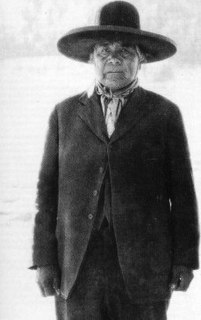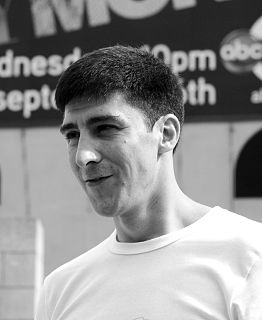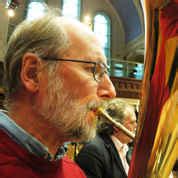A Quote by Samuel Johnson
Our minds, like our bodies, are in continual flux; something is hourly lost, and something acquired.... Do not suffer life to stagnate; it will grow muddy for want of motion: commit yourself again to the current of the world.
Related Quotes
We usually do pay attention to our outer appearance, typically noticing whatever part of our bodies we are unhappy about. It behooves us, however, to get on very good terms with more than just the surface of our bodies as we grow older; for if we don't listen to our bodies and pay attention to our physical needs and pleasures, this vehicle that we need to be running well to take us into a long and comfortable life, will limit what we can do and who we become.
My view is that our minds are incredibly powerful animals that are, during life, kept somewhat in check by the load of our bodies. Once that load is gone (or so some ancient texts teach us) the mind is like a horse off the tether. So the habits we get into here might have something to do with what happens to us afterwards. An exciting but harrowing idea, given the everyday state of my mind. But also hopeful, since that's something a person can work with.
The image of the Goddess inspires women to see ourselves as divine, our bodies as sacred, the changing phases of our lives as holy, our aggression as healthy, our anger as purifying, and our power to nurture and create, but also to limit and destroy when necessary, as the very force that sustains all life. Through the Goddess we can discover our strength, enlighten our minds, own our bodies, and celebrate our emotions. We can move beyond narrow, constricting roles and become whole.
Our bodies, speeches and minds need to be trained so that they will do anything we want. We can cry or laugh at once when we want to. Then it will be a natural response; we will cry when it is time to cry, and laugh when we should laugh. Do you understand? We can get angry when necessary; we can be gentle if we have to. We will completely become our own master. Then, no matter what we want to do, it will benefit the world. It is not difficult to attain this stage; all we need to do is to mediate.
Our deepest calling is not to grow in our knowledge of God. It is to make disciples. Our knowledge will grow -- the Holy Spirit, Jesus promised, will guide us into all truth. But that's not our calling, it is His. Our calling is to prepare the world for Christ's return. The world is not ready yet. And so, we go about introducing a dying world to the Savior of Life. Anything we do toward our own growth must be toward that end.
Like our physical bodies, our memory becomes out of shape. As children, we are constantly learning new experiences, but by the time we reach our 20s, we start to lead a more sedentary life both mentally and physically. Our lives become routine, and we stop challenging our brains, and our memory starts to suffer.





































